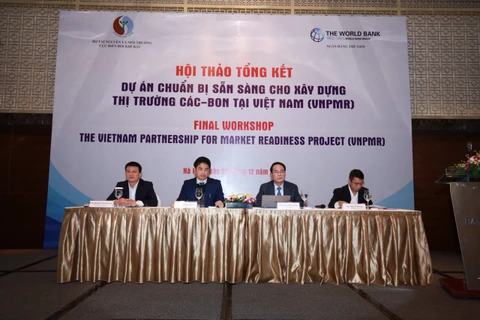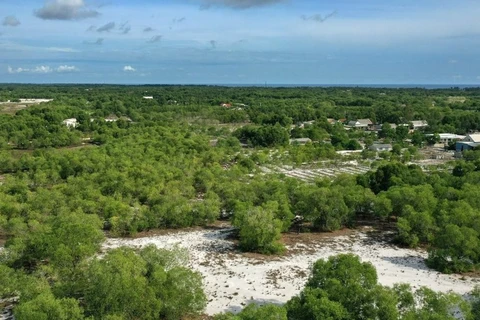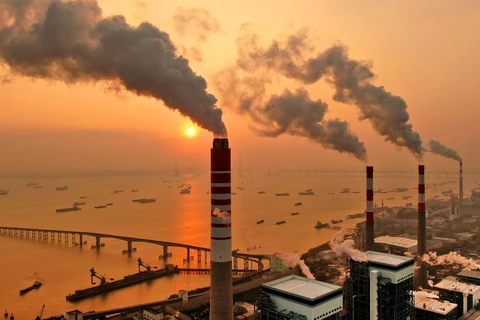Hanoi (VNA) - By developing and operating the domestic carbon market, Vietnam will effectively reduce carbon emissions. This will happen due to the increase in compatibility with international carbon pricing mechanisms, link with international and regional carbon markets, and increase competition among Vietnamese products, according to experts.
Dr. Truong An Ha from the Vietnam Initiative for Energy Transition (VIETSE) said the carbon market is also a mechanism to promote the development and application of low-emission technologies towards a carbon-neutral economy.
Assoc. Prof. Dr. Nguyen The Chinh, former director of the Institute of Strategy, Policy on Natural Resources and Environment under the Ministry of Natural Resources and Environment (MoNRE), said managers need to perfect legal provisions on developing the carbon market to attract participation in this field.
Developing a carbon market with the proactive participation of businesses plays an important role in implementing Vietnam's commitments at the 26th United Nations Climate Change Conference of the Parties (COP26) in 2021 in the UK, Chinh said.
Businesses need to clearly understand the carbon market's operating principles and legal provisions related to the market. This will balance their capacity and readiness to participate in the market when it becomes operational, especially registering to join the carbon credit exchange, he said.
 Energy conversion and net achievement according to zero emissions are strategic choices of Vietnam. - Illustrative image (Photo: VNA)
Energy conversion and net achievement according to zero emissions are strategic choices of Vietnam. - Illustrative image (Photo: VNA) Emission reduction has become a mandatory requirement for businesses. The aim is to reduce harm to the environment, promote sustainable development, and meet the green standards of import countries, experts said.
Deputy Director of the MoNRE's Department of Climate Change Pham Van Tan said energy conversion and net achievement according to zero emissions are strategic choices of Vietnam.
They need to well perform human resources businesses development to meet the requirements of greenhouse gas inventory, and develop plans to reduce greenhouse gas emissions, he said.
Enterprises should avoid or quickly withdraw from industries and business fields that use a lot of energy and emit a lot of greenhouse gases, prepare to join the carbon market, and strengthen cooperation with the government's agencies to develop and implement emission reduction measures, Tan noted.
Meanwhile, To Xuan Phuc from non-profit organisation Forest Trends said many governments and countries, including importers of Vietnamese goods, have committed to achieve net zero emissions by 2050, therefore mechanisms and policies in the time to come will generate both opportunities and challenges for Vietnamese businesses.
Enterprises must be aware that emission reduction is imperative in the future, and they must change technology, management methods, and approaches in order to fully tap opportunities and generate new revenues from carbon and green finance, Phuc said./.
























